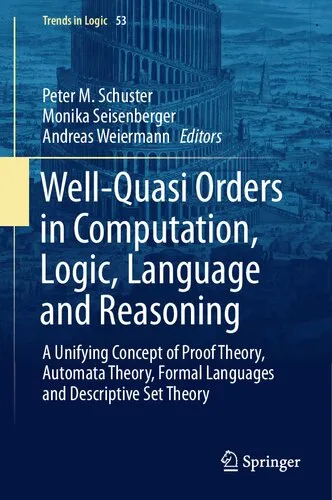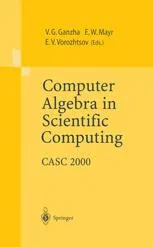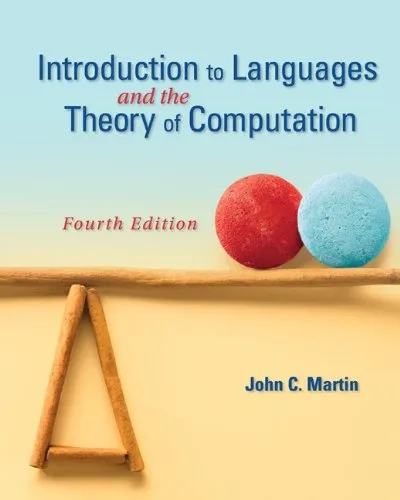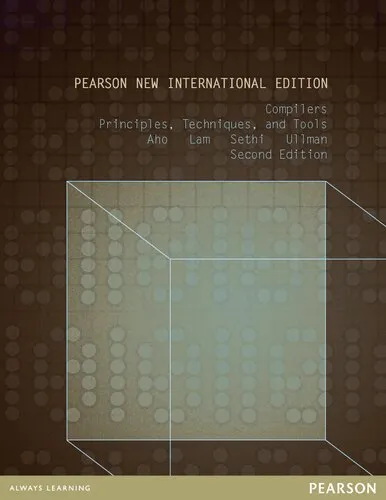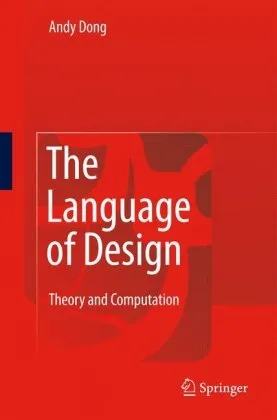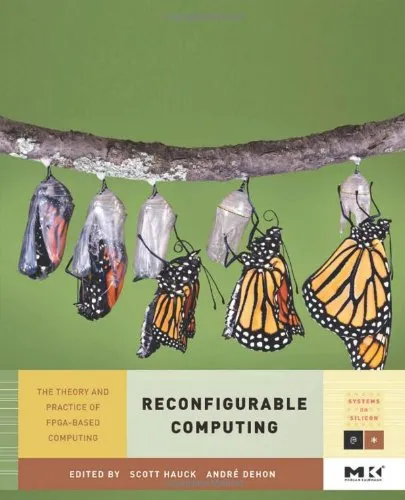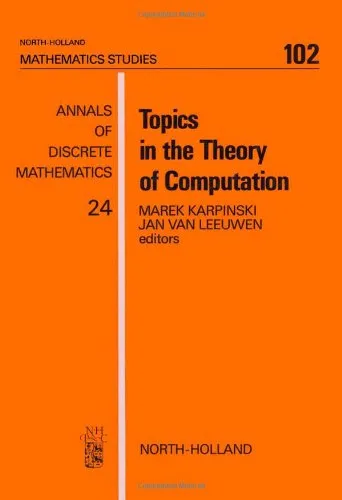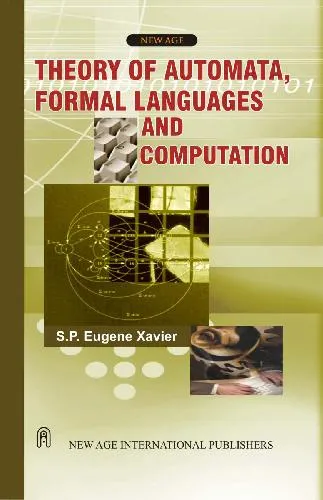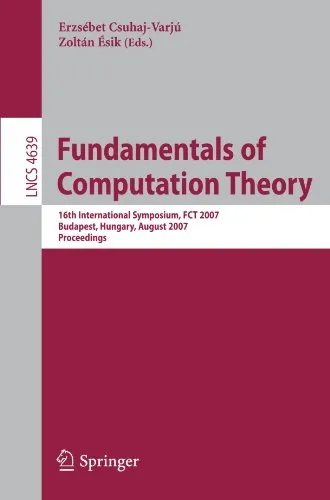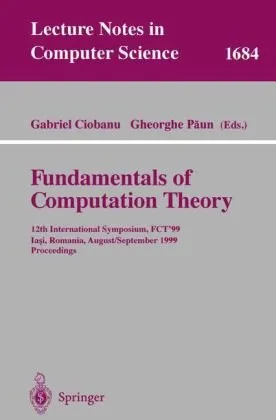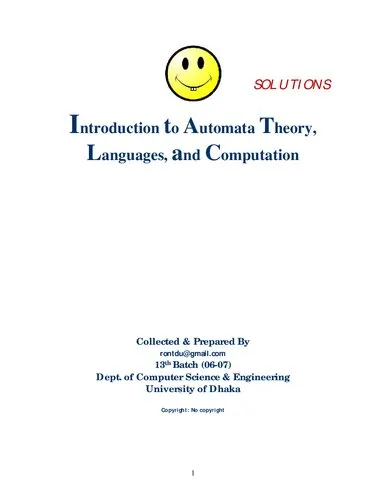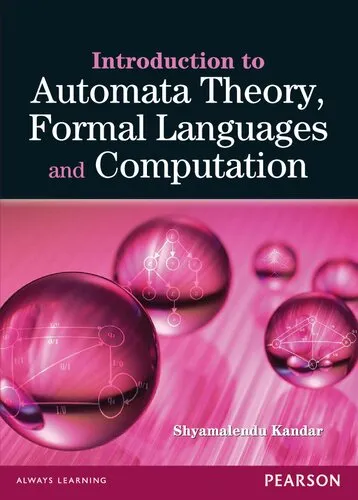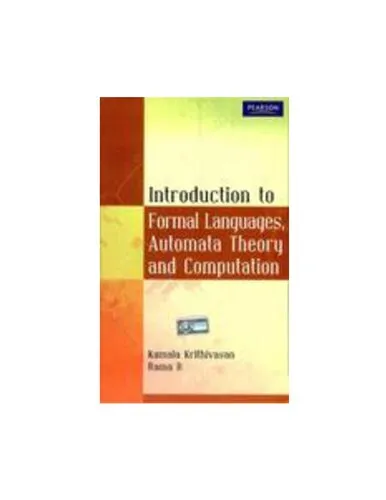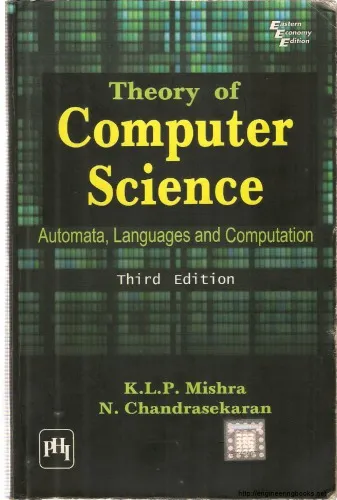Well-Quasi Orders in Computation, Logic, Language and Reasoning: A Unifying Concept of Proof Theory, Automata Theory, Formal Languages and Descriptive Set Theory (Trends in Logic)
4.3
Reviews from our users

You Can Ask your questions from this book's AI after Login
Each download or ask from book AI costs 2 points. To earn more free points, please visit the Points Guide Page and complete some valuable actions.Related Refrences:
Introduction to the Book
The book "Well-Quasi Orders in Computation, Logic, Language and Reasoning: A Unifying Concept of Proof Theory, Automata Theory, Formal Languages and Descriptive Set Theory" offers a comprehensive analysis into the intriguing concept of well-quasi orders (WQOs), which play a pivotal role across multiple domains of theoretical computer science and mathematical logic. Edited by leaders in the field, Peter M. Schuster, Monika Seisenberger, and Andreas Weiermann, this volume serves as a significant contribution to understanding the broad applicability and unifying nature of WQOs.
Detailed Summary of the Book
Within the realm of theoretical computer science and logic, well-quasi orders (WQOs) are foundational concepts that provide a robust framework for understanding structures and processes across various disciplines. This book delves into the theory and application of WQOs, highlighting their critical role in areas such as proof theory, automata theory, formal languages, and descriptive set theory.
The book is systematically divided into sections, each dedicated to a specific domain where WQOs are profoundly beneficial. In proof theory, the book explores how WQOs contribute to establishing consistency and decision procedures. The discussion extends to automata theory, where WQOs help in solving equivalence and minimization problems.
Another key area examined is the application of WQOs in formal languages. Here, the authors explain the interconnection between language hierarchies and order theory, offering readers insight into the unifying nature of WQOs in helping establish linguistic classifications and properties. Finally, the contribution of WQOs to descriptive set theory is explored, emphasizing their importance in understanding complex hierarchies and set relationships.
Key Takeaways
- A deep understanding of how well-quasi orders integrate different domains of theoretical computer science and logic.
- Insight into the application and significance of WQOs in proof theory, automata, formal languages, and set theory.
- Comprehensive coverage of the mathematical underpinnings of WQOs, supported by examples and intuitive explanations.
- A clear illustration of the breadth and depth of WQOs as a unifying concept across various scientific domains.
Famous Quotes from the Book
"In an ever complex universe of computational theories, well-quasi orders stand as beacons of clarity, bridging seemingly disparate domains."
"The elegance of well-quasi orders lies in their simplicity and universality, reminding us of the interconnected nature of logic and computation."
Why This Book Matters
Given the abstract nature and high-level applications of well-quasi orders, this book is indispensable for researchers and students in theoretical computer science and logic. Understanding WQOs equips scholars with essential tools to advance in fields that deal with order, complexity, and classification. This book matters not only for its theoretical insights but also for its potential to inspire further research and innovation, fostering advancements that can span multiple disciplines.
As computational problems grow in complexity, the unifying theory provided by well-quasi orders will undoubtedly become increasingly crucial. This volume is thus more than a textbook; it is a stepping stone into a deeper exploration of mathematical truths that govern logic and computation.
Free Direct Download
You Can Download this book after Login
Accessing books through legal platforms and public libraries not only supports the rights of authors and publishers but also contributes to the sustainability of reading culture. Before downloading, please take a moment to consider these options.
Find this book on other platforms:
WorldCat helps you find books in libraries worldwide.
See ratings, reviews, and discussions on Goodreads.
Find and buy rare or used books on AbeBooks.
1608
بازدید4.3
امتیاز0
نظر98%
رضایتReviews:
4.3
Based on 0 users review
Questions & Answers
Ask questions about this book or help others by answering
No questions yet. Be the first to ask!
